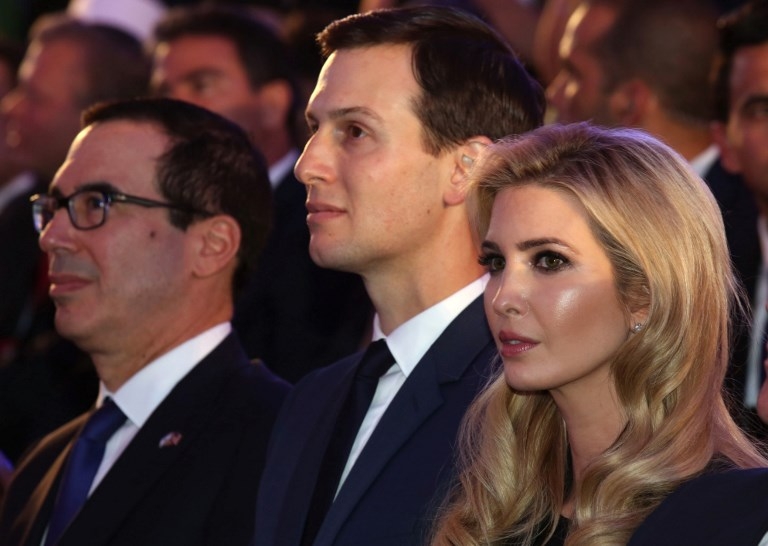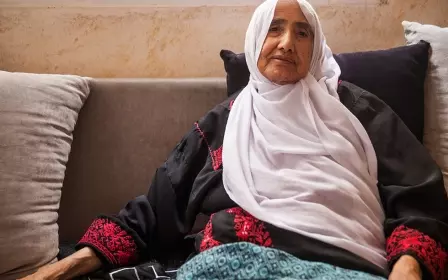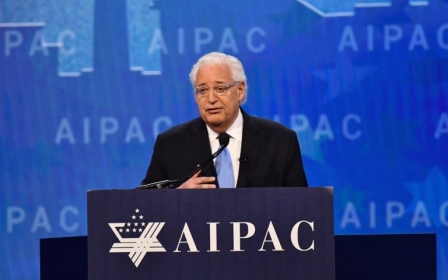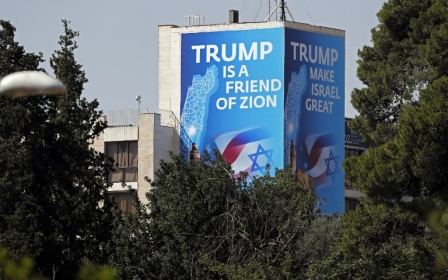US Jerusalem embassy: European envoys snub celebrations

Israel began celebrations on Sunday for the US embassy's relocation to Jerusalem, a move whose break with world consensus was underscored by the absence of most envoys to the country from a reception hosted by Prime Minister Benjamin Netanyahu.
Monday's slated opening of the new embassy follows from US President Donald Trump's recognition in December of Jerusalem as Israel's capital, a decision he said fulfilled decades of policy pledges in Washington and formalised realities on the ground.
Palestinians, who want their own future state with its capital in East Jerusalem, have been outraged by Trump's shift from previous administration's preference for keeping the US Embassy in Tel Aviv pending progress in peace efforts.
Those talks have been frozen since 2014. Other major powers worry that the US move may now inflame Palestinian unrest in the occupied West Bank and on the Gaza Strip border, where Israel reinforced troops in anticipation of the embassy opening.
Most countries say the status of Jerusalem should be determined in a final peace settlement, and say moving their embassies now would prejudge any such deal.
Addressing dignitaries at the Foreign Ministry, including US Treasury Secretary Steven Mnuchin and the president's daughter and son-in-law, Ivanka Trump and Jared Kushner, the Israeli prime minister urged others to follow Washington's lead.
"Move your embassies to Jerusalem because it's the right thing to do," Netanyahu said. "Move your embassies to Jerusalem because it advances peace, and that's because you can't base peace on a foundation of lies."
Netanyahu said that "under any peace agreement you could possibly imagine, Jerusalem will remain Israel's capital".
Jerusalem, which is sacred to Jews, Muslims and Christians, was decorated with roadside flowerbeds in the design of the US flag and posters reading "Trump make Israel great again."
"Tragically, the US administration has chosen to side with Israel's exclusivist claims over a city that has for centuries been sacred to all faiths," the general delegation of the Palestine Liberation Organisation to the United States said.
The US Embassy move "gives life to a religious conflict instead of a dignified peace," it said in a statement.
Israel said all 86 countries with diplomatic missions in Israel were invited to the event, and 33 confirmed attendance. Among those present were delegates from Guatemala and Paraguay, which will open their own Jerusalem embassies later this month.
Attending the Foreign Ministry gathering were representatives from Hungary, Romania and the Czech Republic, but none from Western European Union states - suggesting a rift within the bloc over Trump's Jerusalem move.
No-show nations withheld comment on Sunday.
The EU mission in Israel tweeted on Friday that the bloc would "respect the international consensus on Jerusalem ... including on the location of their diplomatic representations until the final status of Jerusalem is resolved".
The US Treasury secretary called the embassy relocation "a sign of the enduring friendship and partnership between our two countries" and also referred to the US withdrawal last week from the Iran nuclear deal, a move welcomed by Israel and some US Arab allies in the Gulf but lamented by other world powers.
Washington has not asked Israel to initiate peace moves in exchange for the embassy relocation, US Ambassador David Friedman told reporters on Friday: "There was no give and take with Israel with regard to this decision."
Palestinians plan to demonstrate against Monday's inauguration from Arab districts abutting the Jerusalem site.
New MEE newsletter: Jerusalem Dispatch
Sign up to get the latest insights and analysis on Israel-Palestine, alongside Turkey Unpacked and other MEE newsletters
Middle East Eye delivers independent and unrivalled coverage and analysis of the Middle East, North Africa and beyond. To learn more about republishing this content and the associated fees, please fill out this form. More about MEE can be found here.




